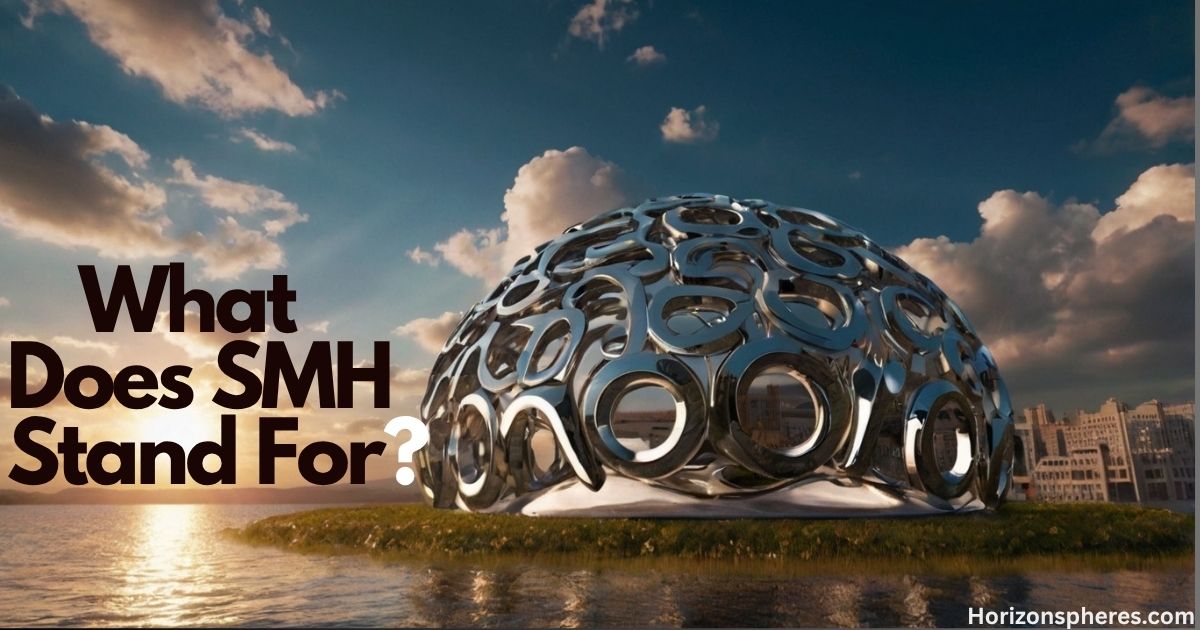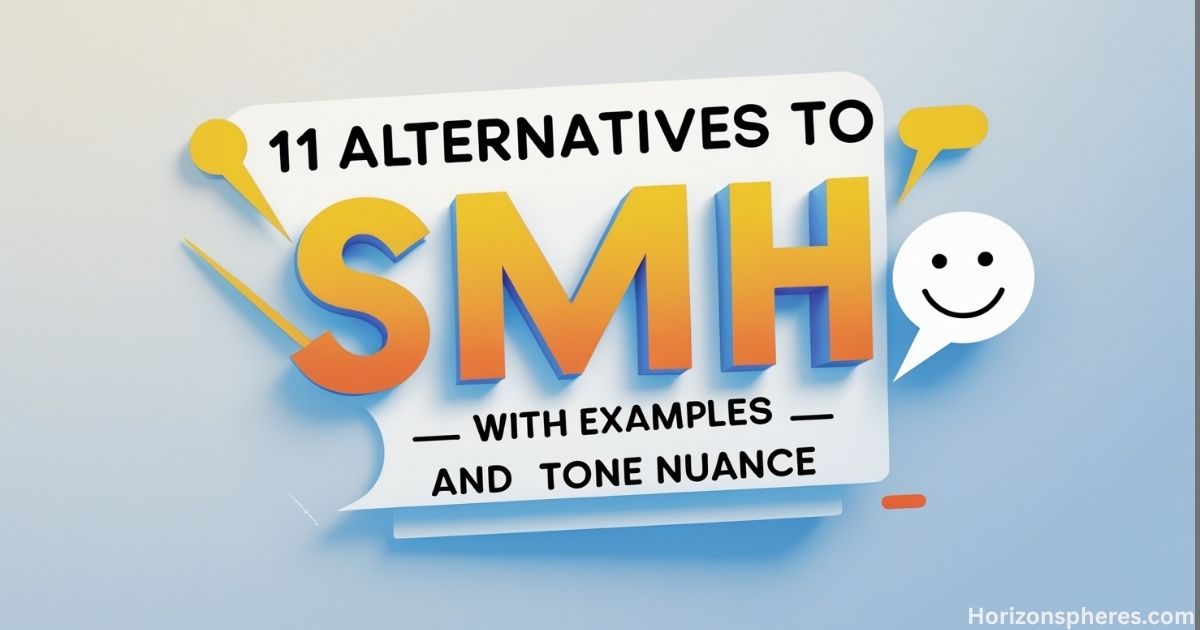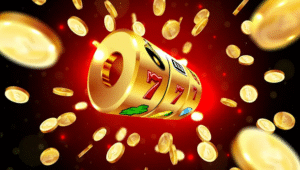SMH is an initialism that stands for “shaking my head“. It’s commonly used in online communication, particularly in text messages and on social media, to express disapproval, disappointment, frustration, or disbelief. It’s essentially the digital equivalent of physically shaking your head in response to something.
Ever found yourself staring at “SMH” in a text thread, completely puzzled? You’re definitely not alone in this digital age confusion. Americans encounter internet slang daily, but understanding context makes all the difference between looking cool and seeming completely lost.
What Does SMH Stand For?

SMH meaning decodes to “shaking my head” – a simple yet powerful expression of disappointment, disbelief, or mild frustration. Unlike complex acronyms, this three-letter combo packs serious emotional punch in digital conversations.
Understanding SMH context varies significantly across platforms and relationships. The smh meaning in chat typically conveys gentle disappointment, while smh meaning from a girl might express playful frustration. Similarly, smh meaning from a guy often signals genuine disbelief or annoyance.
SMH usage varies dramatically across platforms. In text messages, it expresses mild disappointment with casual frustration. On social media, it conveys public disapproval with a judgmental tone. However, in work chat, SMH appears unprofessional and sounds dismissive, potentially damaging workplace relationships.
Key points about SMH meaning:
- Originally means “shaking my head”
- Expresses disappointment without lengthy explanation
- SMH meaning urban dictionary defines it as digital head-shaking
- Can sound rude in professional contexts
- SMH meaning in TikTok often accompanies reaction videos
🧠 Where Did SMH Originate?
SMH originated during the early 2000s texting revolution when Americans needed quick ways to express emotions. Twitter and Facebook popularized this acronym, making it mainstream across all age groups nationwide.
Social media platforms accelerated SMH adoption because users needed efficient emotional responses. Character limits on platforms like Twitter drove creative acronym development, with SMH becoming a universally recognized digital language.
| Platform | SMH Adoption Period | Usage Style |
| SMS/Text | 2000-2005 | Personal conversations |
| 2006-2010 | Public reactions | |
| 2008-2012 | Comment responses |
SMH evolution highlights:
- Started in American texting culture
- Spread through social media platforms
- SMH meaning in chat tagalog shows global adaptation
- Became intergenerational communication tool
- Now recognized across all US demographics
More Post: Gyat Meaning: The Ultimate 2025 Guide Every Parent & Teen Must Read
💬 Why Find Alternatives to SMH?
SMH alternatives become necessary because this acronym often sounds dismissive or unprofessional. Corporate environments particularly frown upon casual internet slang, potentially damaging career prospects and professional relationships.
Generational gaps create SMH misunderstandings, especially when older colleagues encounter unfamiliar acronyms. International teams might completely miss SMH meaning, leading to communication breakdowns and workplace confusion.
| Setting | SMH Problems | Professional Risk |
| Sounds juvenile | High | |
| Meetings | Confuses seniors | Medium |
| Client calls | Unprofessional | Very High |
Reasons to avoid SMH:
- Creates generational communication barriers
- Sounds dismissive in professional settings
- Smh meaning so much hate shows negative interpretations
- International colleagues might misunderstand
- Can damage workplace relationships
✅ 11 Alternatives to SMH — With Examples and Tone Nuance

Professional SMH alternatives protect your reputation while expressing disappointment effectively. These substitutes work across various contexts, from casual conversations to boardroom discussions, maintaining appropriate tone.
Choosing appropriate alternatives depends on relationship dynamics, platform considerations, and desired emotional impact. Business communications require diplomatic language, while personal conversations allow more expressive alternatives.
1. “I can’t believe this.”
Tone: Neutral to mildly frustrated Perfect for expressing disbelief without sounding judgmental or harsh. Example: “The client changed requirements again. I can’t believe this.”
2. “Wow, just wow.”
Tone: Sarcastic or genuinely surprised
Versatile expression for shock, disappointment, or genuine amazement. Example: “They scheduled the meeting for 5 AM. Wow, just wow.”
3. “That’s disappointing.”
Tone: Professional and respectful Ideal for work emails and formal business communications. Example: “The project delivery was delayed again. That’s disappointing.”
4. “Really?”
Tone: Casual and mildly critical Single word carrying significant emotional weight without offense. Example: “You forgot your wallet again? Really?”
5. “Unbelievable.”
Tone: Strong but not aggressive Excellent for genuinely baffling situations requiring emphasis. Example: “He missed the third deadline this month. Unbelievable.”
6. “That’s unfortunate.”
Tone: Calm and empathetic Perfect for situations completely outside someone’s direct control. Example: “The concert got canceled due to weather. That’s unfortunate.”
7. “Why would they do that?”
Tone: Inquisitive and reflective Shifts focus from judgment toward genuine curiosity and understanding. Example: “They moved the meeting to Saturday morning? Why would they do that?”
8. “Seriously?”
Tone: Playful to irritated Similar to “Really?” but with increased emotional intensity. Example: “You brought your cat to the office party? Seriously?”
9. “That doesn’t make sense.”
Tone: Constructive and clear Polite method for pointing out logical inconsistencies or flaws. Example: “So they want results without providing resources? That doesn’t make sense.”
10. “Come on…”
Tone: Familiar and slightly disapproving Great between friends while maintaining lighthearted relationship dynamics. Example: “You locked yourself out for the third time? Come on…”
11. “I expected better.”
Tone: Sincere and firm Communicates disappointment while showing underlying care and concern. Example: “You didn’t follow the agreed process. I expected better.”
| Alternative | Best Context | Professional Level |
| “That’s disappointing” | Work emails | High |
| “Come on…” | Friends/family | Low |
| “Unbelievable” | Any situation | Medium |
More Post: Huzz Meaning: Understanding the Term and Its Alternatives in Everyday Language
🎯 How to Choose the Right Alternative
Context-driven selection ensures your SMH alternative matches the situation perfectly. Consider relationship dynamics, communication platform, situation severity, and desired emotional outcome when choosing appropriate responses.
Professional environments demand diplomatic language avoiding casual internet slang. Personal relationships allow more expressive alternatives, while mixed audiences require neutral, universally understood phrases.
| Factor | Professional Choice | Personal Choice |
| Relationship | “That’s disappointing” | “Come on…” |
| Platform | Email-appropriate | Text-friendly |
| Tone | Diplomatic | Expressive |
Selection guidelines:
- Work settings: Use diplomatic, clear alternatives
- Friend groups: Employ casual, expressive options
- Family chats: Choose familiar, lighthearted responses
- Mixed audiences: Stick with neutral alternatives
- Meaning of SMH and FML: Both require context-appropriate substitutes
SMH vs. Other Internet Acronyms
SMH differs significantly from other popular internet acronyms like LOL, BRB, or TTYL. While most acronyms express positive emotions or neutral actions, SMH carries negative connotations that can damage relationships if misused in professional settings.
Common Acronym Confusion
Key differences between SMH and similar acronyms:
- SMH expresses disappointment, unlike OMG (surprise)
- FML shows extreme frustration, while SMH indicates mild annoyance
- WTF appears aggressive, SMH seems dismissive
- LMAO conveys humor, SMH suggests judgment
- ROFL shows amusement, SMH displays disapproval
More Post: Molto Meaning: Comprehensive Alternatives, Grammar, Unraveling “Molto” and Cultural Context for 2025
Frequently Asked Question
What does smh mean in text chat?
SMH stands for “shaking my head,” expressing disappointment, disbelief, or frustration in digital conversations across all messaging platforms.
What does shm mean in a text message?
SHM is typically a typo of SMH, meaning “shaking my head.” Some use it intentionally as variation.
Is smh disrespectful?
SMH can sound dismissive or rude depending on context, relationship, and tone, especially in professional workplace communications.
What does SMH stand for in sexting?
SMH maintains the same meaning “shaking my head” even in intimate conversations, expressing disappointment or playful frustration.
Conclusion
Understanding SMH meaning empowers better digital communication across all platforms and relationships. These eleven alternatives help you express disappointment professionally while maintaining positive relationships.
Choose context-appropriate responses that reflect your personality without compromising your reputation. Practice these alternatives to become a more effective, respectful communicator in our increasingly connected world.










